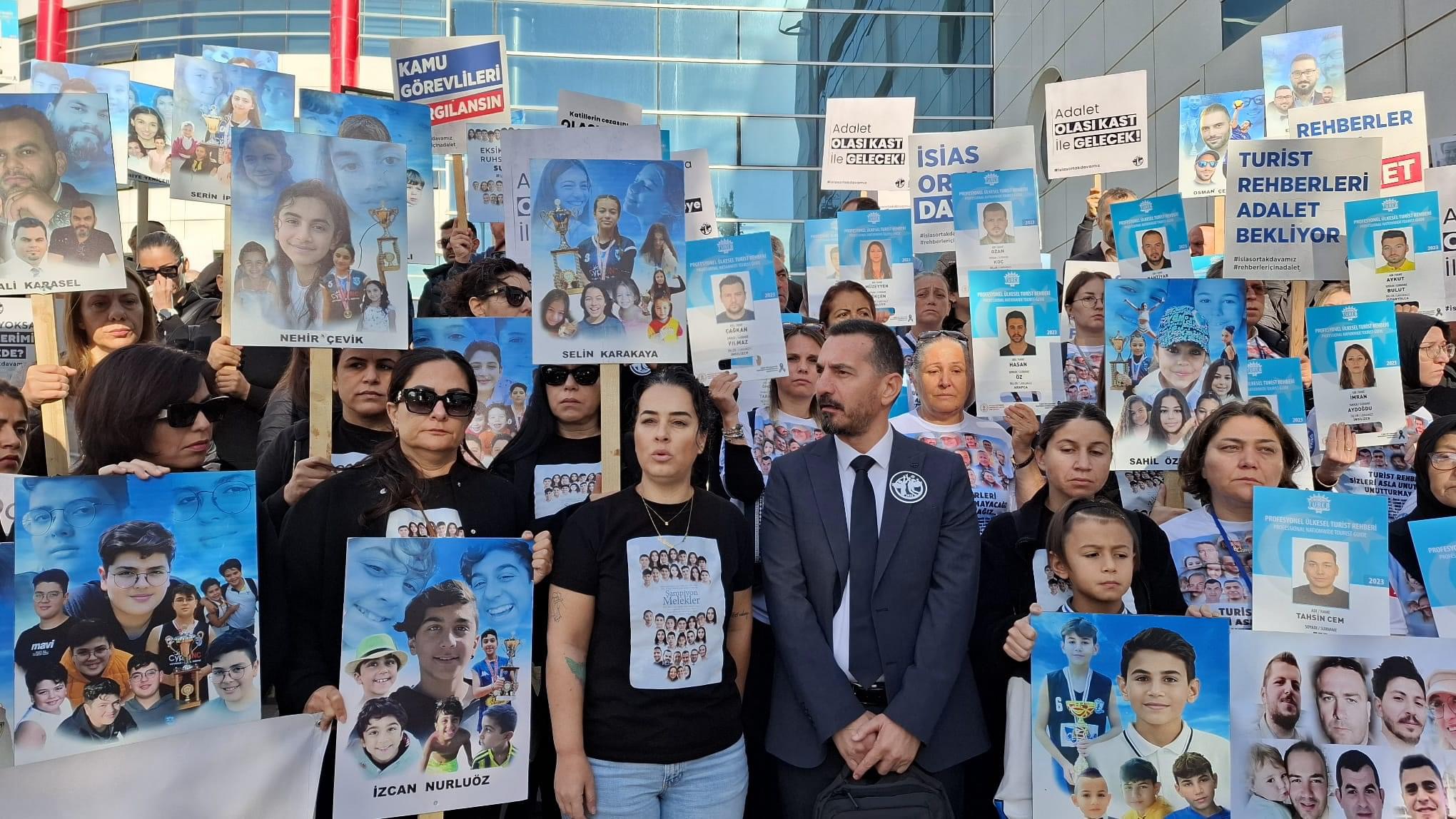The trial of the 11 people held responsible for the collapse of the Isias hotel in the southeastern Turkish city of Adiyaman, which killed 24 Cypriot children, 11 Cypriot adults, and 37 others during the earthquakes which hit the region in February last year, was on Tuesday adjourned until December 3.
Tuesday’s hearing at Adiyaman’s third high criminal court saw tensions raised, with the final stretch of the day’s session seeing hotel owner Ahmet Bozkurt taking questions directly from Cypriot lawyer Pervin Aksoy Ipekcioglu, whose daughter Serin was among those killed when the hotel collapsed.
Their back and forth saw questions regarding the construction of the hotel and composition of the materials used, with Ipekcioglu referring to the Istanbul Technical University’s finding that the building had suffered from “soft storey irregularity”.
This means the higher floors were constructed more rigid than the lower floors, and that thus when the earthquake struck and the lower floors swayed, the higher floors collapsed more easily than they necessarily should have.
Bozkurt maintained his innocence throughout, saying that he had seen the ruins of the hotel before he was arrested and that “90 per cent of Adiyaman had been destroyed” by the earthquake.
“If everywhere was still standing and only the Isias was destroyed, I would have accepted all the accusations,” he said.
He will remain in custody until December 3, having been in custody since his arrest in February 2023.
This fact had been raised by his lawyer, who had requested that both he and his son Mehmet Fatih Bozkurt be released, saying “they have been detained for 21 months and it is clear this has been turned into a punishment and not a precautionary measure.”
During the morning session, Ahmet Bozkurt had said, “I do not accept these accusations, I reject them. We are not guilty; it is a completely natural disaster. I demand to be released. I am a victim, I have lost my health over this.”
At the end of the morning session, Cyprus Turkish Bar Association chairman Hasan Esendagli had accused the defence lawyers of “acting provocatively” in court towards the families of those killed.
Esendagli told newspaper Kibris “the defendants’ lawyers actions were not compatible with the legal profession.
“The defendants’ lawyers are also defending their clients under great pressure. From their perspective, they are just doing their job, but their behaviour just now has been beyond the right to defence. It was aggressive and provocative,” he said.
More than 100 people from Cyprus, including family members of those who were killed, politicians, a delegation of the Cyprus Turkish bar association, and a number of journalists travelled to Adiyaman to attend the hearing.
Rusen Karakaya, whose daughter Selin was among those killed, and who is now the chairwoman of the Keeping the Champion Angels Alive Association – the “champion angels” moniker being given to the Cypriot children who had travelled to Adiyaman representing the Famagusta Turk Maarif Koleji volleyball team – gave a speech outside court.
“Our children are not with us because of Isias, that pile of sand they dared to call a hotel, which was built with greed and negligence. We should not have to visit our loved ones at their graves! We should have hugged them, embraced them, but that right was stolen from us, and this case will never be closed until those who did this are held accountable.”
The north’s ‘prime minister’ Unal Ustel described the collapse of the Isias hotel as the “disaster of the century”.
“I am here in Adiyaman not as the prime minister but as a father, a Turkish Cypriot, and a human being. We have full faith in the Republic of Turkey’s justice system. Our expectation is that the charges be upgraded to include intent,” he said.
The hearing had been set for Tuesday as it had been hoped that a fourth report into the hotel’s collapse, which was ordered by the court in April to be carried out by Izmir’s Dokuz Eylul University, would be ready.
The fourth report was commissioned after a controversial report into the hotel’s construction was prepared by Ankara’s Gazi University. The report was much less scathing than the first two, written by Trabzon’s Karadeniz Technical University and the Istanbul Technical University.
The first two had outlined how sand and gravel from a local river had been used in the hotel’s construction, and how supporting columns had been cut at the hotel, among numerous other deficiencies, but the Gazi University report had said a reported illegal floor and illegal lift shaft had not impacted the hotel’s collapse.







Click here to change your cookie preferences